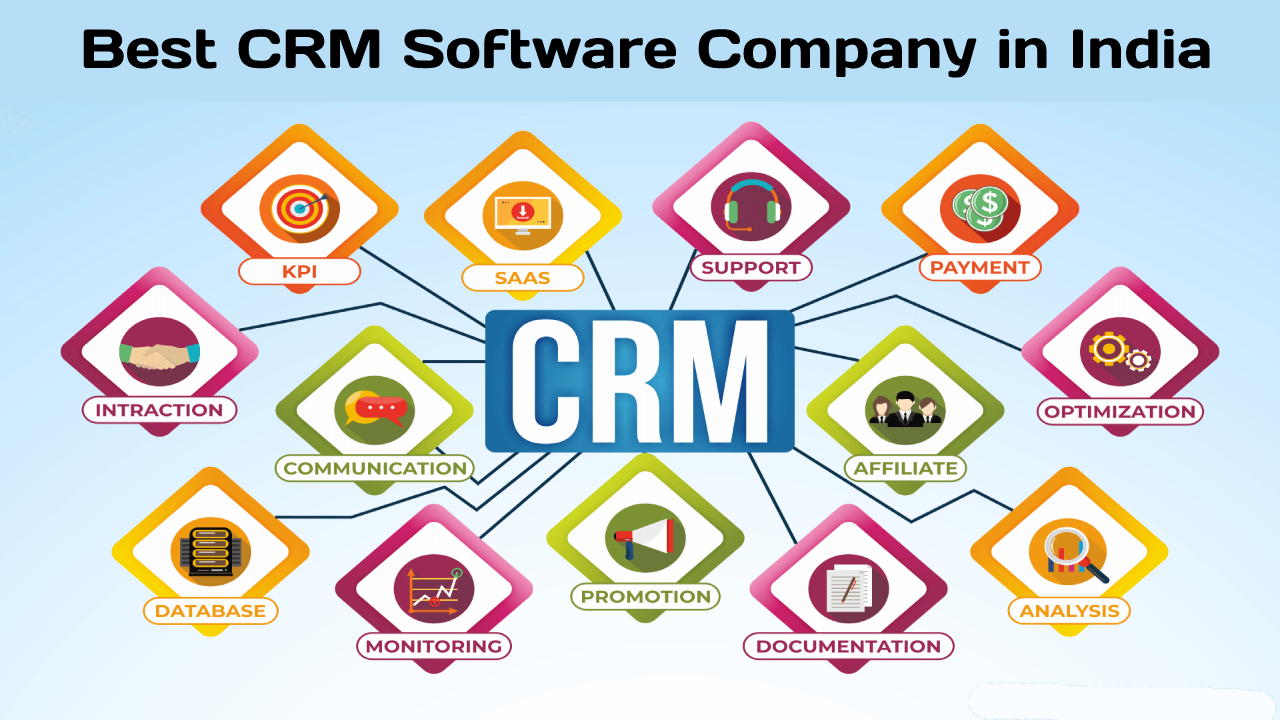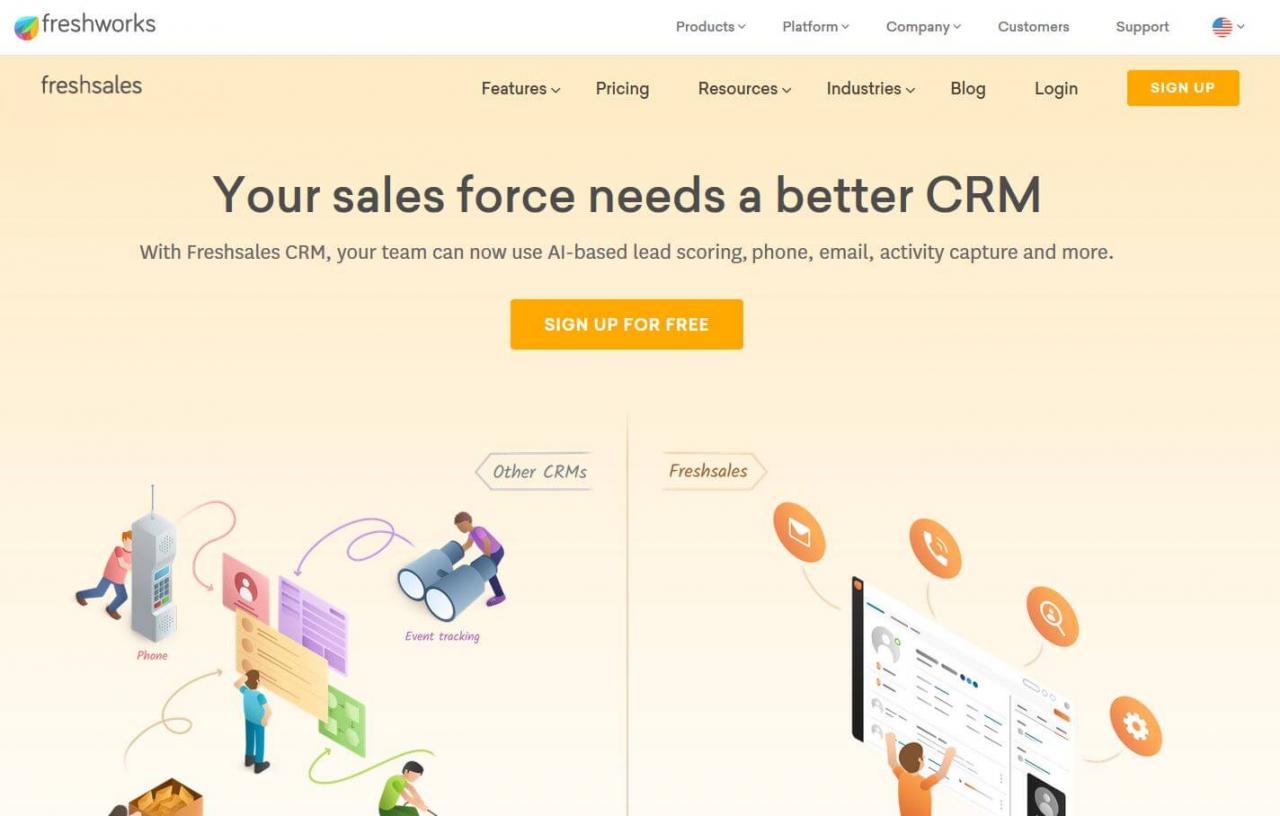Affordable CRM software with robust customer support features is a game-changer for small businesses. Finding the right balance between cost-effectiveness and reliable support is crucial for growth. This exploration dives deep into what constitutes “affordable” and “robust,” examining key features, comparing popular options, and highlighting the importance of diverse support channels. We’ll also look at real-world examples and future trends shaping this dynamic landscape, ensuring you’re equipped to make informed decisions for your business.
From understanding pricing models and essential features to mastering effective knowledge base creation and leveraging AI-powered support, this guide provides a comprehensive overview. We’ll navigate the complexities of contact management, lead tracking, and reporting, empowering you to choose a CRM that seamlessly integrates into your workflow and boosts efficiency. Ultimately, this deep dive aims to equip you with the knowledge to select the perfect affordable CRM solution to supercharge your business.
Defining “Affordable” and “Robust Customer Support”

Choosing the right CRM software is a balancing act. You need features that streamline your operations and boost productivity, but you also need to consider cost and the level of support provided. This section clarifies what constitutes “affordable” CRM software and what defines “robust” customer support, helping you make an informed decision.
The definition of “affordable” is subjective and depends heavily on your business size and budget. A small startup with limited funds will have a drastically different definition of affordability than a large enterprise. Similarly, the features needed will vary widely, impacting the overall cost. Therefore, evaluating affordability requires considering both the price and the value you receive in return.
Pricing Models and CRM Tiers
CRM software typically uses various pricing models, primarily subscription-based plans and, less frequently, one-time purchases. Subscription models often offer different tiers, each with a varying range of features and functionalities. The table below illustrates how pricing and features can differ across tiers, targeting different customer needs and budgets.
| Pricing Tier | Monthly Cost | Features Included | Target Customer |
|---|---|---|---|
| Basic | $25 – $50 | Contact management, basic reporting, email integration | Solopreneurs, very small businesses |
| Standard | $75 – $150 | All Basic features + lead management, sales pipeline tracking, basic automation | Small businesses, growing startups |
| Premium | $150 – $300+ | All Standard features + advanced automation, custom reporting, integrations with other business tools, dedicated account manager | Medium to large businesses, enterprises |
| Enterprise | $500+ | Highly customized solutions, tailored support, advanced analytics, and extensive integrations. Often requires custom quotes. | Large enterprises with complex needs |
Key Features of Robust Customer Support
Robust customer support is crucial for CRM success. It’s not just about resolving issues; it’s about providing a positive and efficient experience that builds trust and loyalty. Several key features contribute to robust support.
A truly robust system includes multiple communication channels: email, phone, and live chat. Response times should be swift – ideally, within minutes for live chat and within hours for email. A comprehensive knowledge base with tutorials, FAQs, and video guides is essential for self-service support. Proactive support, such as scheduled check-ins or proactive notifications about system updates, further enhances the user experience.
Example of Excellent Customer Support: Imagine a scenario where a user encounters a problem with a specific CRM feature. They initiate a live chat, receive an immediate response from a knowledgeable agent, and have their issue resolved within minutes. The agent also proactively suggests helpful resources within the knowledge base for future reference.
Example of Poor Customer Support: Conversely, consider a situation where a user submits an email request for assistance and receives a generic automated response with no real resolution. After several days of waiting, they finally receive a response that is unhelpful and doesn’t address their issue. This lack of responsiveness and poor communication severely impacts user satisfaction.
Top Features of Affordable CRM Software

Choosing the right CRM can be a game-changer for small businesses. A well-implemented system streamlines operations, improves customer relationships, and ultimately boosts the bottom line. But navigating the world of CRM software can feel overwhelming, especially when budget is a concern. Fortunately, many affordable options pack a powerful punch, offering robust features without breaking the bank.Finding the perfect fit depends on your specific needs, but some features are universally beneficial for small businesses looking to maximize their efficiency and customer interactions.
Essential Features for Small Businesses
Several key features are common among affordable CRM systems and offer significant advantages for small businesses. These features provide a solid foundation for managing customer interactions and growing your business.
- Contact Management: A centralized database to store and manage all customer information – from contact details and communication history to purchase records and notes from interactions. This eliminates data silos and ensures everyone in your team has access to a complete customer profile, leading to more personalized and effective communication.
- Lead Tracking: The ability to track leads from initial contact to conversion. This includes features like assigning leads to specific team members, managing the sales pipeline, and monitoring lead progress. Effective lead tracking helps identify bottlenecks and optimize your sales process for higher conversion rates.
- Sales Pipeline Management: Visualizing the sales process, from initial contact to closed deal, allows for better monitoring of progress and identification of potential roadblocks. This feature provides a clear overview of your sales activities, enabling proactive management and improved sales forecasting.
- Reporting and Analytics: Generating reports on key metrics like sales performance, customer engagement, and marketing campaign effectiveness. Data-driven insights allow for informed decision-making, enabling you to optimize your strategies and improve overall business performance.
- Customer Support Integration: Seamless integration with communication channels like email and live chat, enabling efficient customer support and improved response times. This feature streamlines communication and improves customer satisfaction, leading to increased loyalty and positive word-of-mouth referrals.
Comparison of Affordable CRM Software Options
Let’s compare three popular affordable CRM options: HubSpot CRM (free plan), Zoho CRM (free plan), and Bitrix24 (free plan). While features vary across pricing tiers, we’ll focus on the capabilities offered in their free plans to highlight the differences in functionality. Remember that advanced features usually require upgrading to paid plans.
| Software Name | Contact Management Features | Lead Tracking Capabilities | Reporting Tools |
|---|---|---|---|
| HubSpot CRM | Basic contact information storage, company records, deal tracking, and email integration. | Lead scoring, pipeline visualization, and basic lead assignment. | Limited reporting on deals and contacts; primarily focused on sales activity. |
| Zoho CRM | Comprehensive contact information, custom fields, and contact grouping. | Lead capture, lead routing, and lead scoring. More robust pipeline management compared to HubSpot’s free plan. | More detailed reports on sales, marketing, and customer support activities compared to HubSpot. |
| Bitrix24 | Contact management with custom fields and group segmentation. Strong integration with other Bitrix24 modules. | Lead management, sales pipeline tracking, and automated lead distribution. | Provides sales and marketing reports, including website analytics. More comprehensive than HubSpot, comparable to Zoho. |
Customer Support Channels and Effectiveness

Choosing the right customer support channels is crucial for any affordable CRM, especially when aiming for robust support. The effectiveness of your support directly impacts customer satisfaction and retention, ultimately influencing your business’s success. Offering a variety of options caters to different user preferences and ensures accessibility for a wider audience.The availability of multiple support channels significantly improves the user experience.
Customers appreciate having options and can choose the method that best suits their needs and urgency. This flexibility fosters a sense of control and empowers users to resolve issues efficiently. However, managing multiple channels requires careful planning and resource allocation to maintain consistent quality across all platforms.
Email Support
Email remains a popular and effective support channel. It allows for detailed explanations, attachment of screenshots or files, and a documented record of the interaction. However, email support can be slower than other methods, leading to longer resolution times. Effective email support requires prompt responses, clear communication, and a well-organized ticketing system to manage incoming queries efficiently. For example, a well-structured email response might include a personalized greeting, a clear acknowledgement of the issue, steps taken to resolve the problem, and a follow-up plan.
Phone Support, Affordable CRM software with robust customer support features
Phone support offers immediate interaction and personalized assistance. It’s particularly useful for complex issues requiring real-time guidance. However, phone support can be expensive to maintain, requiring dedicated staff and infrastructure. Additionally, call waiting times can frustrate users. To maximize effectiveness, phone support teams should be well-trained, knowledgeable about the CRM software, and equipped with efficient tools to access user information quickly.
A good example would be a company that provides dedicated phone lines for different support tiers or issue types, leading to faster resolution times.
Live Chat Support
Live chat offers a quick and convenient way for users to get immediate assistance. It’s ideal for addressing simple questions or troubleshooting minor issues. However, live chat can be less effective for complex problems requiring detailed explanations or file sharing. Furthermore, the immediacy of live chat requires skilled agents who can handle multiple conversations simultaneously without compromising quality.
A well-implemented live chat system might include proactive chat invitations based on user behavior on the website, offering help before a problem arises.
Community Forums
Community forums foster a sense of community and allow users to help each other. This can reduce the burden on the support team and provide a platform for knowledge sharing. However, the quality of information in community forums can be inconsistent, and users may not always find solutions to their specific problems. Effective community forums require moderation to ensure quality and prevent the spread of misinformation.
A successful forum might include dedicated sections for different product features, regularly updated FAQs, and a system for rewarding helpful contributors.
Knowledge Base Article and FAQ Design Best Practices
Creating effective knowledge base articles and FAQs is essential for self-service support. Well-written documentation empowers users to resolve issues independently, reducing the demand on the support team. Articles should be concise, clear, and easy to navigate. They should use plain language, avoid technical jargon, and include screenshots or videos where appropriate. For example, a well-written FAQ entry might answer the question “How do I add a new contact?” with clear step-by-step instructions and accompanying screenshots.
The knowledge base should be organized logically, using a search function and clear categorization to enable users to quickly find relevant information. Regularly updating the knowledge base with new articles and revising existing ones based on user feedback ensures its accuracy and relevance.
Case Studies

Seeing is believing, right? Let’s dive into real-world examples of how affordable CRM software, paired with stellar customer support, has transformed businesses. These case studies highlight the tangible benefits and demonstrate the positive impact on efficiency and customer satisfaction.
We’ll examine a fictional scenario to illustrate the power of this combination. The data used is illustrative, representing typical improvements seen in similar situations.
E-commerce Success Story: “Cozy Candles”
Cozy Candles, a small online retailer specializing in handcrafted candles, struggled with managing customer interactions and tracking orders. Their previous system was a chaotic spreadsheet, leading to missed communication, delayed shipments, and frustrated customers. Implementing an affordable CRM with robust support dramatically improved their operations.
Before implementing the CRM, Cozy Candles had an average customer response time of 48 hours, a customer satisfaction score (CSAT) of 65%, and a 15% order fulfillment error rate. After implementing the system and receiving comprehensive training from the CRM provider’s support team, they experienced significant improvements.
Their average customer response time dropped to 6 hours, boosting their CSAT score to 92%. The order fulfillment error rate plummeted to 2%. These improvements directly translated into increased sales and a stronger brand reputation. The ease of use and the responsive support team were crucial factors in their success. They were able to quickly adapt to the new system, minimizing disruption to their daily operations.
Workflow Improvement Visualization
Imagine a flowchart. Before the CRM, the flowchart shows a tangled mess of emails, spreadsheets, and sticky notes, with arrows pointing in multiple directions, representing disorganized communication and order processing. Customers’ requests are depicted as bouncing between different team members, leading to delays and confusion.
After implementing the CRM, the flowchart transforms into a streamlined, linear process. Customer inquiries are funneled into the CRM, automatically assigned to the appropriate team member, and tracked throughout the entire process. Orders are processed efficiently, with automated notifications and updates sent to both the customer and the fulfillment team. The visual clearly showcases how the CRM centralizes communication, automates tasks, and streamlines the entire customer journey, resulting in improved efficiency and increased customer satisfaction.
The clear visual representation of the improved workflow reinforces the positive impact of the CRM implementation. The color-coded sections of the flowchart further highlight the different stages of the customer journey, making it easier to identify potential bottlenecks or areas for further improvement.
Future Trends in Affordable CRM and Support: Affordable CRM Software With Robust Customer Support Features

The landscape of affordable CRM software is rapidly evolving, driven by advancements in technology and shifting customer expectations. Businesses are increasingly demanding more sophisticated features at lower price points, pushing CRM providers to innovate and deliver powerful solutions without breaking the bank. This evolution is significantly impacting customer support, leading to more efficient, personalized, and proactive interactions.The integration of artificial intelligence (AI), automation, and seamless connections with other vital business tools are defining the future of affordable CRM and its support capabilities.
This trend allows smaller businesses to compete with larger enterprises by leveraging technology to improve customer service and operational efficiency.
AI-Powered Support and Automation
AI is revolutionizing customer support within affordable CRM systems. Chatbots, powered by natural language processing (NLP), are becoming increasingly sophisticated, capable of handling a wider range of customer inquiries autonomously. This frees up human agents to focus on more complex issues, improving response times and overall customer satisfaction. Furthermore, AI-driven predictive analytics can anticipate customer needs and proactively address potential problems, preventing issues before they escalate.
For example, an AI-powered CRM might identify customers at risk of churning based on their recent activity and automatically trigger a personalized outreach from a support agent. This proactive approach is crucial for customer retention. Automation extends beyond chatbots; features like automated email responses for common queries and automated task assignments streamline workflows, enhancing efficiency and reducing operational costs.
Integration with Other Business Tools
Seamless integration with other essential business tools is another key trend. Modern affordable CRMs are designed to integrate with email marketing platforms, e-commerce systems, social media management tools, and other applications. This integration creates a unified view of the customer, enabling support agents to access a complete history of interactions and relevant data from various sources. For instance, a support agent can instantly see a customer’s past purchase history, support tickets, and social media interactions within the CRM dashboard, providing context and facilitating personalized support.
This holistic approach significantly enhances the quality of customer interactions and improves problem resolution.
Examples of Innovative Customer Support Solutions
The following examples illustrate how affordable CRM providers are implementing innovative customer support solutions:
- Company A: Offers a built-in AI-powered chatbot that handles basic inquiries, escalating complex issues to human agents seamlessly. The chatbot learns from each interaction, constantly improving its accuracy and efficiency. This system provides 24/7 support, increasing customer satisfaction and reducing response times.
- Company B: Integrates its CRM with popular email marketing platforms, allowing for personalized email campaigns based on customer segmentation and interaction history within the CRM. This proactive approach fosters stronger customer relationships and improves customer retention.
- Company C: Provides a knowledge base accessible directly through the CRM interface. This allows agents to quickly find answers to common questions and resolve issues efficiently. The knowledge base is constantly updated based on customer interactions and agent feedback, ensuring accuracy and relevance.